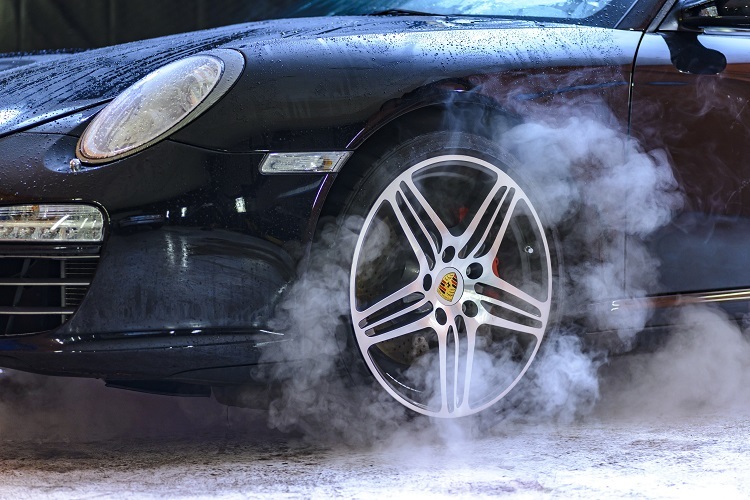10 bad driving habits that are actually damaging your car

Avoid these 10 bad driving habits if you wish to prolong your car’s overall life and reduce spending on your wallet.
Bad driving habits aren't always road-related. Sometimes, these habits affect the car's overall health and may increase a driver's expenditure for his or her vehicle. Some classic examples include driving around with a low tank of gas, or making sudden brakes while driving.
To help you avoid frequent trips to the workshop, we'll be taking a look at 10 bad driving habits you should avoid at all cost. Check them out below.
1. Driving with a Low Tank of Gas
Do you have a habit of pumping 100,000 VND worth of gas? If you do, you might want to pony up more fuel money, because driving around with a low tank of gas can actually cause harm to your car’s fuel system. For those unaware, dirt and rust does accumulate in your gas tank, and these sediments can enter your car’s fuel system and clog its fuel filter if the petrol level in your car drops too low.
If you wish to avoid an early trip to your workshop, it’s best to drive around with at least half tank of gas.
2. Sudden Acceleration and Braking
The streets in Vietnam aren't that big and there is literally a traffic light stop or pedestrian crossing every 400 metres on our roads. That’s is why we don’t understand why some drivers have the need to hard accelerate, only to have to jam their brakes at the next junction. Not only are you burning petrol with your quick acceleration, but you’re also wearing out your brake pads excessively whenever you jam the brakes.
If you can’t resist the urge to speed, just remember that your wallet will pay the price when your workshop bill arrives.
3. Carrying Too Much Weight
Did you know all cars come with a maximum load weight? If you go beyond the weight limit, you’ll be putting unnecessary stress on your car’s suspension and brakes. Your car also consumes more fuel when its overburdened.
If you don’t need your golf clubs or baby stroller on your next trip, it’s best to store them at home.
4. Resting Your Hand on The Gear Shift
Unless you are actively changing gears (for manual cars), there is no reason to rest or keep your hand on the gear stick. With your hand resting on the gear stick, it places unnecessary weight on the selector fork, causing premature internal wear.
Instead of resting your hand on the stick, heed your driving instructor’s advice by keeping both hands on the steering wheel.
5. Revving the Engine When It’s Cold
Letting your car run for a minute or two before driving off is good practice. However, revving your engine while it’s still cold is generally not a good idea. Not only are you causing abrupt temperature change in your engine, but you’re also wearing down internal engine parts that have yet to be lubricated with oil.
Instead of being impatient, treat your car like a person by giving it some time to warm up on its own.
6. Shifting Your Car from Drive to Reverse Before Coming to a Stop (and Vice Versa)
It's common for most drivers to shift from drive to reverse (and vice versa) when attempting to parallel park. But did you know this actually damages your car’s transmission and gearbox? Think about it for a moment. How would you like it if you were sudden pulled backwards as you're running forward?
Do yourself and your car a favour by coming to a stop before switching gears.
7. Not Using Your Emergency Brake When Parked
Failing to use the emergency brake when parked forces your entire car weight to rest on the parking pawl. Located within an automatic transmission, the parking pawl is a small metal component that locks up a car's transmission and prevents the drive wheels from turning. If this the parking pawl is worn out, it essentially makes the “P” on your gear shift useless.
Always remember to use your emergency brake when parking, even if it’s only for a few minutes.
8. Squeezing the Clutch at Traffic Lights
Only applicable to manual cars, squeezing the clutch while waiting for the light to turn can cause some damage to your vehicle's transmission. When holding the clutch in, the weight of your foot puts unnecessary stress on the pressure plate, release arm, and release bearing. It might even cause irreparable damage to the transmission if engaged for too long.
Instead of squeezing the clutch, leave your car in neutral with the handbrake engaged until you are ready to move off.
9. Engaging the Brake When Travelling Downhill
Instead of relying on your brakes when travelling downhill, you should switch to a lower gear and make use of engine breaking. Not only will you reduce the wear and tear on your brake pads. but it also saves you the additional cost of having to replace them.
If braking is absolutely necessary when driving downhill, remember to brake lightly and release the brake pedal after a while to allow them to cool off.
10. Ignoring Warning Signals on Your Car
Modern vehicles are quite intelligent as they’ll often inform us if something’s wrong under the hood. However, some of us choose to ignore these warning signals out of fear of spending additional money. Instead of waiting for the problem to accumulate, it’s always best to fix it before it becomes a much larger issue.
By fixing a car problem early, it not only helps you save money and future trouble, but it might even save your life on the road.
